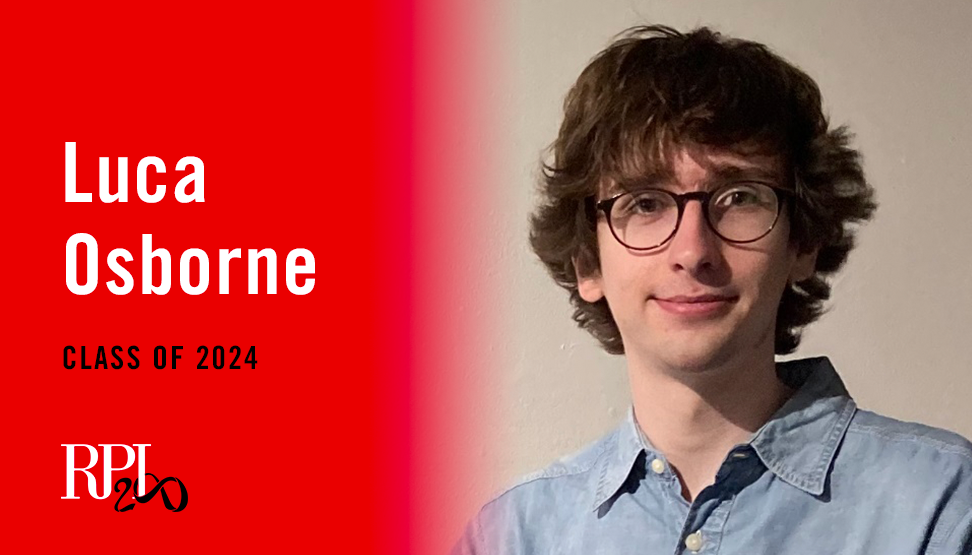By Christian TeBordo
The thing that struck Luca Osborne ’24 on his very first visit to RPI was the multidisciplinary approach to academics that seemed to permeate the entire campus. “I really connected with the different creative pursuits that students could take part in while still maintaining that ‘engineering level’ of rigor and coursework,” he said. He couldn’t wait to use the studios and facilities available to students on campus, and he got started as soon as he arrived.
An electronic arts major, Osborne quickly found that the impression he’d gotten of RPI’s coursework on that visit had been correct. “I originally had planned for a more music-focused degree,” he said, “but while making my way through the program I found myself taking more graphic design and illustration courses, which led me to take a multidisciplinary approach to my own degree. I was able to customize my degree with my adviser, allowing me to take both audio and visual electronic arts classes and expanding the breadth of my original focus.”
But he also learned that the ability to experiment and branch out went far beyond the classroom. “As an instrumentalist, I took part in quite a few extracurriculars, like a few music clubs, school-hosted competitions and recitals, and student-led ensembles such as playing in the pit orchestra for several musicals hosted by the RPI Players,” he said.
It might seem difficult to balance the rigors of RPI coursework with all of that outside activity, but from Osborne’s perspective, it actually helped him manage his time. “Honestly, the extracurriculars I took part in didn’t feel like extra work to me!” he said. “Playing music with others was a great motivation to keep my schedule steady and helped me take my mind off of any stressful deadlines I had coming up.”
As he prepares to celebrate his graduation, he’s been reflecting back on all of those experiences. “I’ve learned a lot about myself and my field of study through a courseload that could only be offered here. One of the best features of this college is the agency given to students through the wide variety of facilities that are freely available for anyone to ideate and create with.”
Asked what advice he has for continuing students or those thinking about enrolling, he recommends the approach he took. “Don’t get tunnel vision on just studying. Allow yourself to explore the vast dimensions of extracurriculars and other creative pursuits that are available to anyone here! The only limit is your own imagination (well, and homework).”


